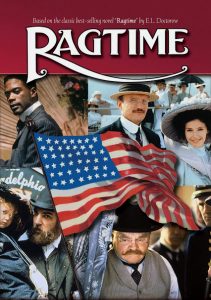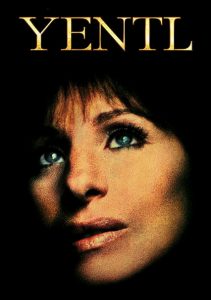Ragtime-1981
Director Milos Forman
Starring Howard E. Rollins, Brad Dourif, Mary Steenburgen
Scott’s Review #1,183
Reviewed October 1, 2021
Grade: A-
Milos Forman, most famous for directing 1975’s One Flew Over the Cuckoo’s Nest and 1984’s Amadeus, creates a relevant period piece drama with a moving racial storyline.
Set in the turn of the twentieth-century New York, Ragtime (1981) mixes an important message with gorgeous costumes and a peppering of romantic intrigue.
The film was honored with an astounding eight Academy Award nominations but came away empty-handed.
The cast is enormous and I love that aspect of the film. At two hours and thirty-five minutes, the experience nearly felt too short since there were plenty of stories left to tell, mainly with the sub-plots.
Some resolutions are not clearly explained but of course, the central story ends tragically.
A fun fact is that initially Robert Altman was signed on to direct the film but was replaced by Forman. My mind conjures up endless juicy moments that Altman likely would have added. As good as Forman is Altman would have been even better.
There are also a few real-life people sprinkled in with fictitious characters which may cause some confusion, especially with the high volume cast. Newsreels of Theodore Roosevelt, Houdini, and architect Stanford White are featured.
A flurry of juicy tales based on E.L. Doctorow’s eponymous novel dissects life in pre-World War I New York City. The haves and have-nots see their lives intersect in many different ways.
A lavish party in Atlantic City is a fabulous highlight of Ragtime.
One day, a rich white family living in New Rochelle, New York, finds a black baby in their yard and takes in the mother (Debbie Allen) as a maid. A black pianist, Coalhouse Walker Jr. (Howard E. Rollins Jr.), returns for his woman and child after finding success in a Harlem jazz band.
A group of small-minded firefighters, irritated to see a successful black man own a Model-T Ford, deface it, and Walker demands retribution. This sets the main chain of events in the film as a war rages between Walker and his friends and the white firefighters.
There are more stories presented in a lesser form that I would have loved more from like the interesting friendship between the black Walker and the white younger brother played by Brad Dourif.
In a strange scene, millionaire industrialist Harry Kendall Thaw (Robert Joy) makes a scene when White unveils a nude statue atop Madison Square Garden, modeled after former chorus girl Evelyn Nesbit (Elizabeth McGovern), Thaw’s wife.
Convinced White has corrupted Evelyn, Thaw publicly shoots him dead.
From an acting perspective, the film belongs to Howard E. Rollins. I immediately treasured the character he plays and rooted for him to win. Intelligent yet put upon he goes through several incarnations of the character and twice as many emotions. He was by far the richest character of all as far as substance.
Other characters intrigued but to dissect them would be impossible since there were so many of them. McGovern, Mandy Patinkin, and Mary Steenburgen are my favorite characters.
The only slight drawback is that the film has a glossy look to it and gritty scenes are not powerful enough. As intense a moment as the finale is, for example, I wanted something dirtier. When Walker’s fate is sealed I wanted to be more frightened instead of feeling like I was being fed high drama.
Ragtime (1981) successfully and nearly flawlessly combines artistic style with an enormous social message. It looks polished and representative of the early 1900s and it challenges audiences to take a look at how different cultures co-existed in another time.
Oscar Nominations: Best Actor in a Supporting Role-Howard E. Rollins Jr., Best Actress in a Supporting Role-Elizabeth McGovern, Best Writing, Screenplay Based on Material From Another Medium, Best Art Direction-Set Direction, Best Cinematography, Best Costume Design, Best Music-Original Score, Best Music-Original Song-“One More Hour”

